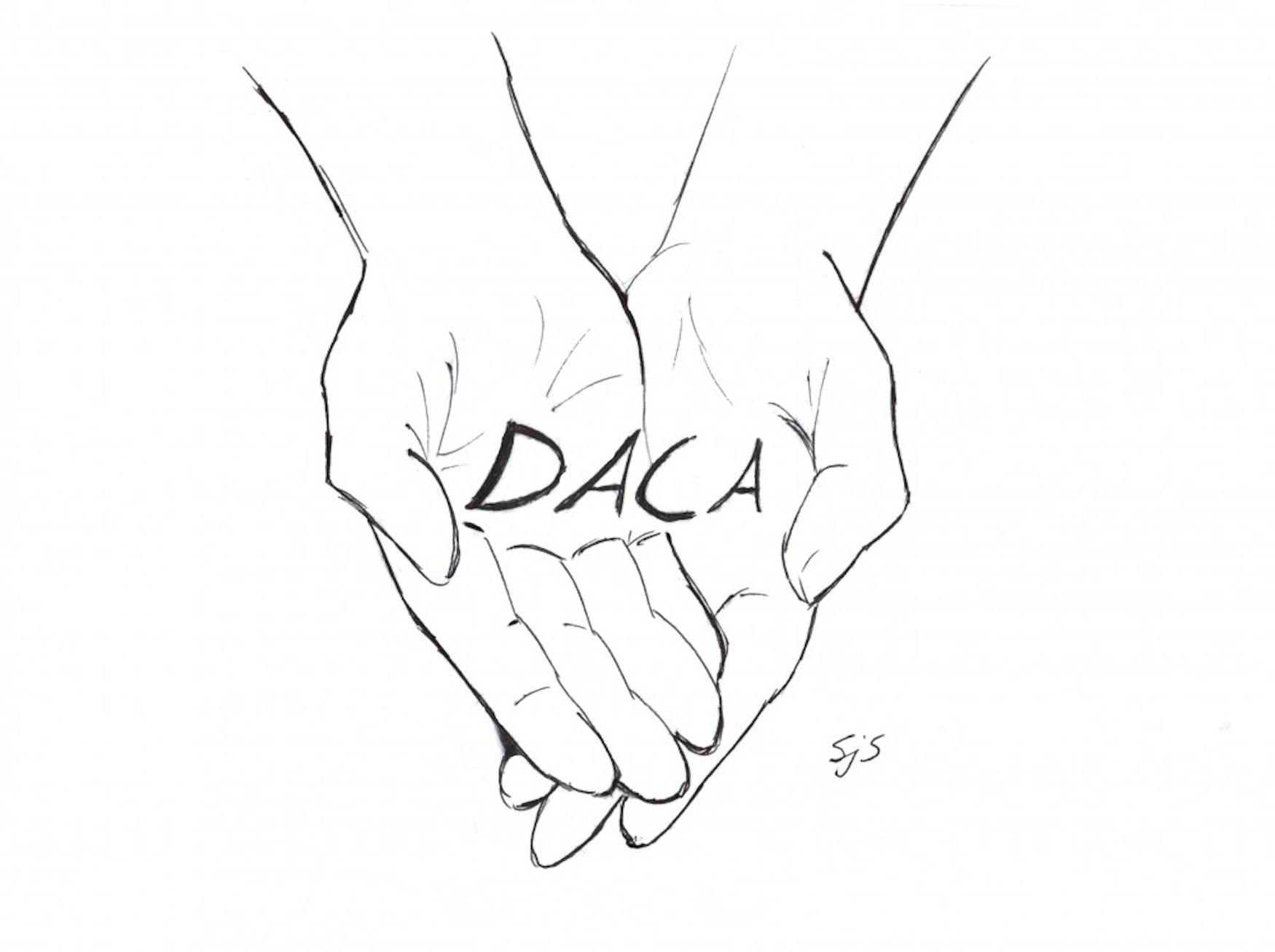Acknowledge President Liebowitz's DACA address
President Donald Trump announced last Tuesday his decision to rescind the Deferred Action for Childhood Arrivals program.
The 2012 program, which protects individuals brought to the United States as children, affects approximately 800,000 immigrants across the country, some of whom are Brandeis students.
Trump’s announcement gives Congress six months to pass immigration legislation on the issue. If they are unable to do so, Trump warned in a tweet last Tuesday, he will “revisit this issue.”
In a Sept. 5 letter to President Trump, University President Ronald Liebowitz urged the White House to reverse its decision. In his letter, a positive development in the University’s stance on immigration, Liebowitz cited the unlikelihood that Congress will pass meaningful legislation within the six month window.
“Here at Brandeis University, we value our DACA students, who enrich our campus in many ways and are integral to our community,” Liebowitz wrote. “Reversing DACA inflicts harsh punishment on the innocent. As a nation founded by immigrants, we can, should, and must do better.”
This board commends President Liebowitz for his letter; as he rightly states, DACA recipients enhance the community as typical Brandeis students with a unique perspective.
However, it is crucial to keep in mind that actions often speak louder than words. With this in mind, the University must ensure that it does all it can to consult and help DACA students.
According to a Nov. 22, 2016 Justice article, Chief Diversity Officer Mark Brimhall-Vargas asked the audience at a discussion on sanctuary campuses to consider whether visibility or lack of visibility would work best in protecting undocumented students.
Ultimately, the only individuals who can determine the right course of action — visibility or lack thereof — are the affected students themselves.
In this regard, the University must consult with DACA students in order to gauge which actions will be most helpful to them.
While the Department of Homeland Security will no longer accept DACA applications, renewal applications for those whose two-year work permits expire before March 5, 2018 will still be accepted if submitted by Oct. 5.
With this deadline looming overhead for some, the University could offer affected students legal resources and help with renewal paperwork.
The Brandeis Counseling Center might also offer special mental health services tailored for students facing the threat of deportation or familial separation, as 993 community members suggested in an open letter to administrators in November. Additionally, faculty members could offer extensions and extra support to students whose immigration status might take a toll on their academics.
In a Sept. 7 tweet, Trump wrote that DACA recipients concerned about their immigration status during this six month period “have nothing to worry about.” Brandeis is already on the right track in making undocumented students feel safe on campus. However, with much at stake and immigration status left uncertain for many, it is time for the University to put meaningful changes into action.



Please note All comments are eligible for publication in The Justice.